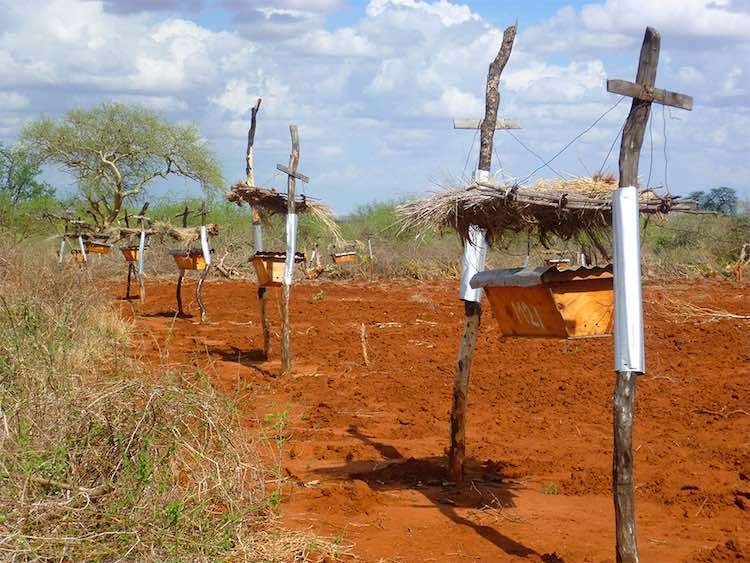Refugees Give Back To Host Country and Canadians Displaced by Wildfire
Syrians who were so compassionately welcomed into Canada are now returning the favor for the Fort McMurray families fleeing wildfire.

Biologists in Kenya have discovered a deliciously ingenious method of balancing the needs of farmers, bees, and marauding wildlife all at once.
African elephants are notoriously tempted by crops growing on nearby farms. Farmers, until now have known very few humane ways to prevent them from eating and trampling harvests. Fencing is typically too expensive for smaller farmers, while standing guard in fields with airhorns and bright lights is very labor-intensive.
Breeding honeybees, however, not only turns out to be a deterrent to keep out giant mammals, but also a sweet benefit for the farmer.
A trip line is rigged between fence posts that – when pulled – activates a disturbance mechanism in the beehives. Since elephants have evolved to the point of fleeing anytime they even hear the sound of the stinging insects, they are compelled to retreat.
Costing only a few dollars per meter makes the solution extremely cost-effective while also providing a cash crop of honey for the small rural farmers and a proper habitat for the declining bee population.
The increased pollination of surrounding vegetation also benefits the environment by supporting edible greenery for local wildlife and providing a carbon sink for atmospheric carbon.
The method is such an unbeelievably sustainable solution, that is quickly spreading to Uganda, Sri Lanka, Botswana, and Mozambique.
Buzz About The Good News To Your Friends… Click To Share
Be the first to comment